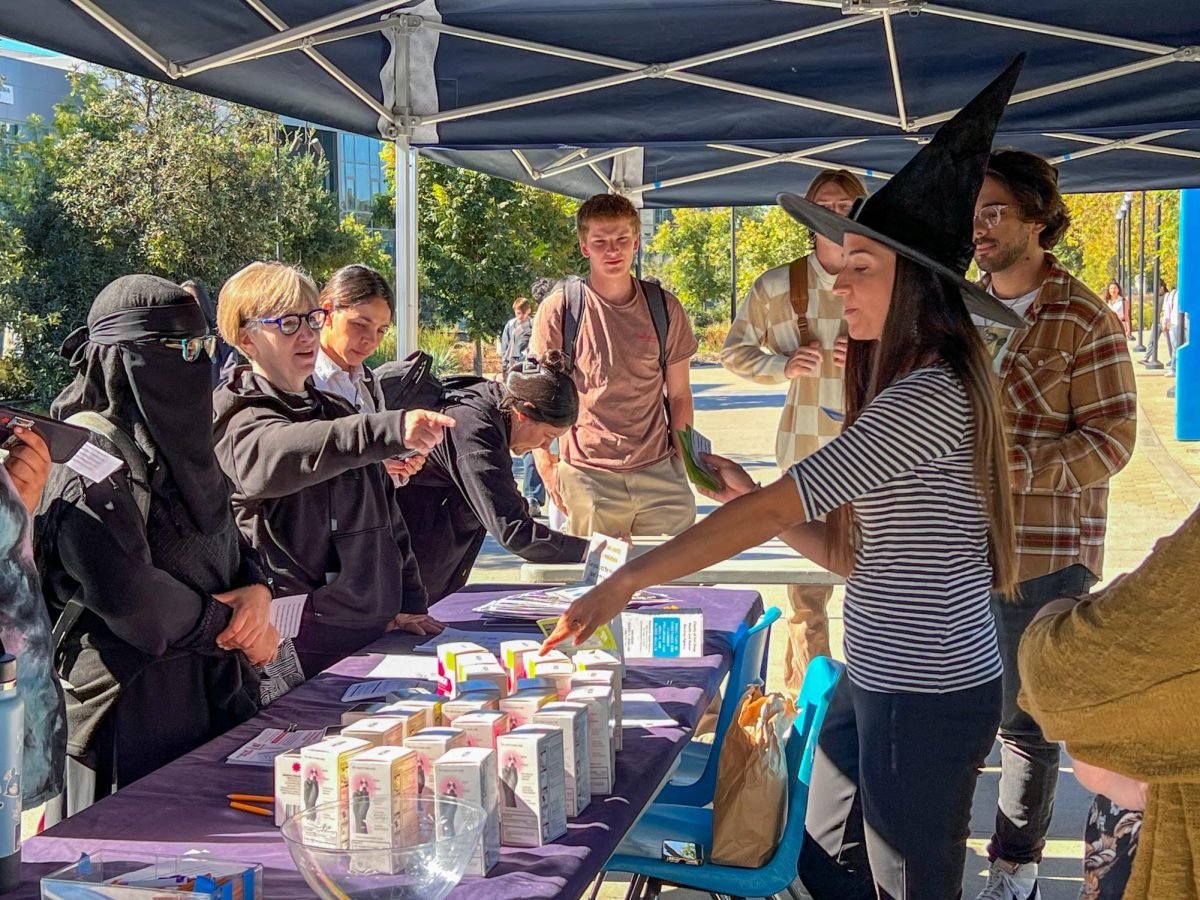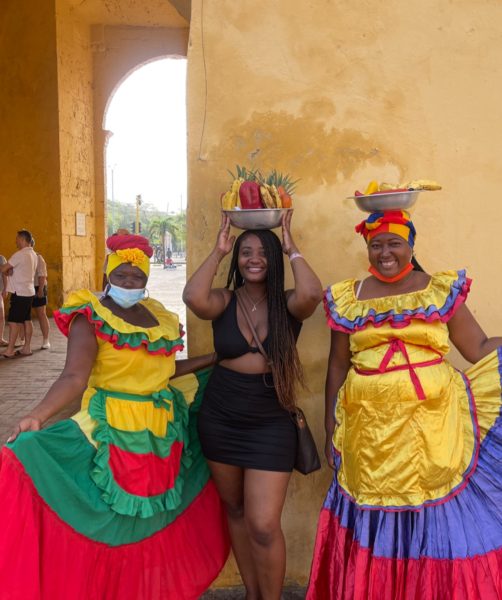On Oct. 31, Mesa College’s Student Health Services held its first of five naloxone training and distribution sessions. From 11 a.m. to 1 p.m. on the Mesa Commons Quad, nurse practitioner Laura Milligan handed out boxes of Narcan nasal sprays and test strips to all those interested.
Narcan, the brand name of the device that administers naloxone, is a medicine that quickly reverses the effects of an opioid overdose by attaching to the opioid receptors and blocking its effects. Opioids are a class of drugs that include heroin, fentanyl, and prescription drugs such as oxycodone, hydrocodone, and many others.
The number of opioid overdoses and deaths in San Diego County has skyrocketed since 1999 and continues to increase. According to the California Overdose Surveillance Dashboard, there were 528 opioid-related deaths in San Diego County in 2020, a 115% increase from 2016. Accidental fentanyl overdoses have increased at an astronomical level. According to the San Diego Medical Examiner’s Office, accidental fentanyl overdose deaths increased by 2,345% countywide, going from 33 deaths in 2016 to 807 deaths in 2021.
In the hopes that providing training will lead to Narcan becoming more accessible to the public, and with its utilization becoming common knowledge, Milligan provided spectators with a five-minute demonstration on how to use it. “We’re offering it [Narcan] to everyone so that it gets in as many hands as possible. That way, when there are overdoses, it’s more likely that someone there has Narcan,” Milligan said. “Because the Narcan is what’s going to save their lives.”
Fentanyl has become a leading topic of concern due to its immense potency. As with many other opioids, it does have a legitimate medical purpose as a treatment for severe pain, and is regularly administered in hospital settings by licensed medical professionals. It is a synthetic opioid that is 50 times more potent than heroin and 100 times stronger than morphine. It boasts catchy street names like China Girl, China Town, Dance Fever, Friend, Goodfellas, Great Bear, He-Man, and Jackpot, but the pleasant names are a far cry from the deadly effects of this drug. According to the Drug Enforcement Administration, a lethal dose of fentanyl can be as small as two milligrams.
Many students who attended the training were curious about Narcan but never had any direct experience with opioid overdoses. Others have. 24-year-old history major Ignacio Kear knows all too well the impact that illegal drug use can have on the people around you. As he grew up, his older brother struggled with heavy substance use for over ten years. He has known of his brother using different forms of fentanyl and believes that this training will be beneficial to him in the future. “I thought it was a good idea to have this in my car in case I ever see anyone who needs it,” Kear said. “If I ever see him [my brother] struggling, I could save his life.”
Student Affairs project assistant and Narcan training volunteer Chrystian Smith actively works toward the betterment of her community, which is being severely inundated by illegal drug use. “I have been in the blessed position to never have had to utilize it [Narcan], but I take comfort in, and I feel empowered knowing how to use it if I ever run into a situation,” Smith said. “I have one in my car, one in my purse, and I generally keep one in my office.” When asked why it is so important to her to stay aware of the opioid crisis in San Diego she said that, “living in San Diego, we have to live with the reality that our community is actively within a drug crisis. And my approach has always been collective care and community care… Unfortunately, while I do not have the authority to fix the fentanyl problem in San Diego, what I do know is that I can take an active position in understanding how to use Narcan, understanding CPR, and understanding how to administer Narcan and fentanyl test strips.”
National Overdose Awareness Day is Aug. 31, and cities all around the country use this day to shed light on the opioid crisis that no place in America is safe from. A Narcan vending machine is available in McAlister South Bay Regional Recovery Center in Chula Vista, located at 1180 Third Ave. Suite C-3 for easy access to the life-saving drug. Mesa’s student health office will provide students with a free box of Narcan anytime they request one. Substance Abuse and Mental Health Services Administration (SAMHSA) is an agency within the U.S. Department of Health and Human Services (HHS) that offers free services to individuals living with mental and substance use disorders and their families.
Better to be Safe than Dead flier: Link
SAMHSA website and hotline: SAMHSA link / 1-800-662-HELP (4357


